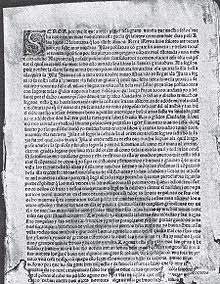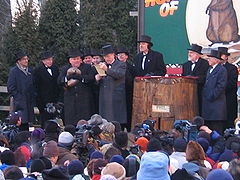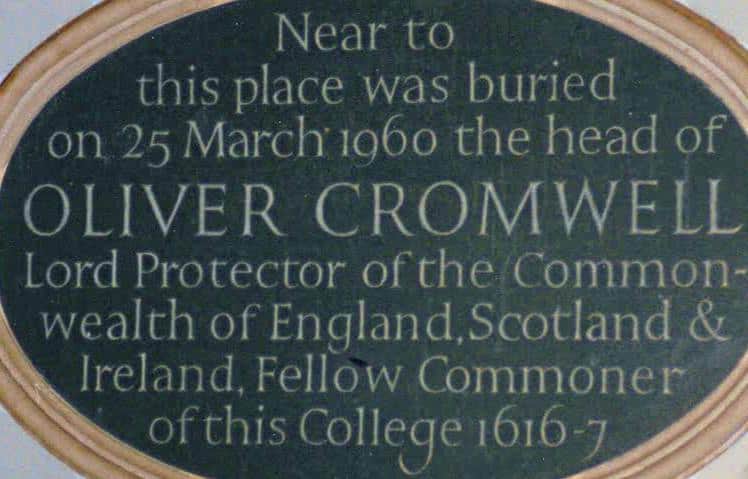1493
Columbus issues a letter
Shortly before making landfall on his return from his first Voyage to the Indies, Columbus wrote this letter, excerpted below:
Since I know that you will be pleased by the great victory which Our Lord has given me on my voyage, I am writing you this letter, from which you will learn how in twenty days I crossed to the Indies with the fleet which the King and Queen, our most illustrious sovereigns, gave me. I found there very many islands inhabited by people without number, and I have taken possession of them all on behalf of Their Highnesses by proclamation and by unfurling the royal standard, and I was not contradicted.
To the first island I found I gave the name San Salvador in memory of His High Majesty who miraculously has given all this; the Indians call it Guanahaní. To the second I gave the name the island of Santa María de Concepción; to the third, Fernandina; to the fourth, Isabela; to the fifth, the island of Juana, and so on, to each a new name.
When I reached Juana I followed the coast to the west and I found it to be so large that I thought it must be the mainland, the province of Cathay; and since I found no towns or villages on the coast except small settlements with whose inhabitants I could not speak because they all immediately fled, I continued on that course thinking that I could not fail to find great cities or towns.
After many leagues, having seen that there was nothing new and that the coast was carrying me northwards, which was not the course I wished to take because winter was now drawing on and I proposed to make to the south, and as moreover the wind was carrying me forward, I decided to wait no longer and I turned round and made for a fine harbour. From there I sent two men inland to find out if there was a king or any great cities. They travelled for three days and found an infinite number of small villages and countless people, but no sign of authority; for which reason they returned. I understood well enough from some other Indians I had already taken that the whole of this coast was an island; and so I followed the coast one hundred and seven leagues to the east to where it ended.
I sighted another island to the east, eighteen leagues distant, to which I then gave the name Español… Española is a marvel; the sierras and the mountains and the plains and the fields and the land are so beautiful and rich for planting and sowing, for raising all kinds of cattle, for building towns and villages. The harbours are beyond the belief of anyone who has not seen them, and the many great rivers give good waters of which the majority bear gold. There are great differences between the trees and fruit and plants and those of Juana. On this island there are many spices and great mines of gold and other metals.
All the people on this island and all the others I have found or have learned of go naked, men and women alike, just as their mothers bear them, although some women cover themselves in one place with a leaf from a plant or a cotton garment which they make for the purpose.
They have no iron or steel or weapons, nor are they that way inclined, not because they are not well built and of fine bearing, but because they are amazingly timid. They have no other weapons than those made from canes cut when they are in seed, to the ends of which they fix a sharp stick; and they dare not use them, for many times I have happened to send two or three men ashore to some town to speak to them and a great number of them have come out, and as soon as they see the men coming they run off, parents not even waiting for children, and not because any harm has been done to any of them; on the contrary, everywhere I have been and have been able to speak to them I have given them some of everything I had, cloth and many other things, without receiving anything in exchange; but they are simply incurably timid.
The truth is that, once they gain confidence and lose this fear, they are so lacking in guile and so generous with what they have that no-one would believe it unless they saw it. They never refuse to give whatever they have, whenever they are asked; rather, they offer it willingly and with such love that they would give their hearts, and whether it is something of value or of little worth, they are happy with whatever they are given in return, however it is given …. I gave them thousands of pretty things I carried with me so that they would be well disposed and, moreover, would become christians, inclined to the love of Their Highnesses and the whole Castilian nation, and help us by giving us the things they have in abundance and of which we have need.
They knew no sect and were not idolaters, except that they all believe that power and good come from heaven, and they believed very firmly that I and these ships and crew came from heaven and in this belief they received me everywhere, once they had overcome their fear. And this is not because they are ignorant; rather, they are of subtle intelligence and can find their way around those seas, and give a marvellously good account of everything; it is only because they have never seen men clothed or ships of that kind. When I arrived in the Indies, at the first island I found I took some of them by force so that they could learn and give me information about what there was in those parts, and in that way they soon understood us and we them, whether by word or by sign; and they have been very useful to us. I still have them with me, and they still insist that I come from heaven, in spite of all the exchanges they have had with me, and they were the first to announce this wherever I went, and the others would run from house to house and to the nearby towns shouting: “come, come and see the people from heaven.” In this way they all flocked in, men and women alike, great and small, once they were confident about us; none were left behind, and they all brought something to eat and drink, which they gave with marvellous affection….
So I have found no monsters, nor heard of any except on an island here which is the second one as you approach the Indies and which is inhabited by people who are held in all the islands to be very ferocious and who eat human flesh. These people have many canoes in which they sail around all the islands of India robbing and stealing whatever they want; they are no more malformed than the others except that they wear their hair long like women and they carry bows and arrows made from the same cane stems with a small stick at the end for want of iron which they do not have. They are ferocious with these other people who are excessively cowardly, but I take no more account of them than of the rest.
In conclusion, to speak only of what has been achieved on this voyage, which was very rapid, Their Highnesses can see that I will give them as much gold as they require if Their Majesties will give me only a very little help; as much spice and cotton as Their Majesties may order to be shipped, as much mastic as they may order to be shipped, which until now has only been found in Greece, on the island of Chios, and the Genoese government sells it for whatever it likes, and as much aloe as they may order to be shipped and as many slaves as they may order to be shipped, and who will be from among the idolaters. I believe that I have found rhubarb and cinnamon and that I will find a thousand other things of value which the men I have left there will have discovered; for I have not delayed at any point whenever the wind gave me the opportunity to sail, except at the town of Navidad for as long as I might leave it safe and secure. And in truth I could have done a great deal more if the ships had served me as reason demanded.
That is enough. Eternal God, our Lord, gives to all those who follow His path victory over things which appear impossible, and this was a very notable example. For, although these lands may have been spoken or written of, that was all conjecture, without eye-witness, and those who heard the stories listened to them and judged them more as fables than as having the least vestige of truth. Therefore, since Our Redeemer gave to our most illustrious King and Queen and to their famous kingdoms this victory in such great matters, the whole of Christendom should be joyful and hold great celebrations and give solemn thanks to the Holy Trinity with many solemn prayers for the great exultation they will have when so many people return to our holy faith and for the temporal benefits which will bring solace and profit not only to Spain but to all christians. This is a brief account of what has been achieved.
Dated on board the caravel, off the islands of the Canaries, 15 February in the year 1493.
Your obedient servant. The Admiral.










